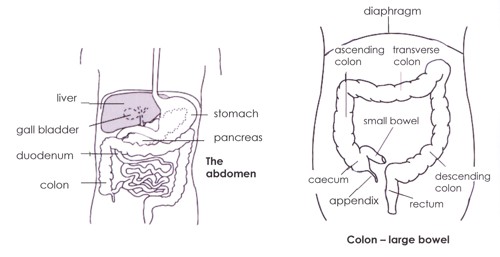As with any operation under general anaesthetic, there is a very small risk of complications related to your heart and lungs.
The tests that you will have before the operation will make sure that you can have the operation in the safest possible way. This brings the risk for such complications very close to zero.
This is a major operation and complications can happen more often compared with other operations of the bowel. When they do happen, they are quickly recognised and dealt with by the surgical staff. If you think that all is not well, let the doctors or the nurses know.
You may get a chest infection, particularly if you smoke.
To prevent chest infections it is important to:
- get out of bed as soon as possible
- get as mobile as possible
- co-operate with the physiotherapists to clear the air passages
- do not smoke
The bowel can be slow to start working again.
There can be some discharge from the drain by the wound, but this stops given time.
Wound infection happens more often in any bowel operation compared to other 'clean' operations such as taking out your gallbladder. The reason is that the bowel has many bugs that can cause an infection. This settles down with antibiotics in a week or two.
Very rarely, during the operation, another part of the bowel, bladder or a blood vessel can be damaged. Another operation may be needed to deal with this.
One possible major complication is a leak from the area where the two parts of your bowel were put back together. The chance of a leak is up to 15%. It is more frequent in patients whose wounds may take longer to heal. For example elderly people, diabetics and patients suffering from cancer.
If you do have a leak you will stop eating and drinking for several days until the bowel heals completely. In the meantime you will be given all the food and water you need through a catheter in one of your veins. This often fixes the problem but another operation may be needed to control the leak.
You may also have:
- aches and twinges in the wound for up to six months
- numb patches in the skin around the wound - these get better after two to three months
- slow healing of the lower wound


